Keeping the 'Social' in Social Distancing with Geocaching
Looking to get outside because your stay-at-home life is starting to drive you batty? Need something to do with your kids during a break in their school day? Want to feel a connection to your community and environment? If you've never tried geocaching, now might be the optimal time while you also strive to maintain an optimal social distance.
Editor's Note: As the COVID-19 crisis unfolds in Minnesota, certain details in our stories about the impact of the virus may become outdated within hours, days or weeks of our publication. For the most up-to-date information about the coronavirus in Minnesota, please visit the websites for the Office of Governor Tim Walz and Lt. Governor Peggy Flanagan or the Minnesota Department of Health.
While you may have heard of geocaching, you might be wondering exactly what it entails. By way of explanation, geocaching is a technology-driven, outdoor treasure hunt that has no end. The treasures hidden in containers, or caches, are small and carry little, if any, value; and you can leverage different apps on your mobile device to track their location. Sure enough, there's likely a geocache hidden less than a couple hundred feet from your home.
Tim and Thom Larsen are avid geocachers. I caught up with them on a recent Saturday morning at Lebanon Hills Regional Park in Eagan to learn more about one of their favorite pastimes.
A tromp through the big, vast landscape was just the thing I needed to clear my house-bound head a bit.
You may be hard-pressed to find two geocachers as prolific as Tim and Thom. On March 25, 2020, Governor Tim Walz issued an executive order that asks Minnesotans to stay at home unless they have an urgent need to leave - but state residents can still go outside for exercise or solace as long as they maintain a minimum 6-foot distance from others. My hunch is that Minnesotans might be craving some creative ways to spend their time in the great outdoors - so I asked Tim and Thom some additional questions to give you a little inspiration in trying an activity you can do at a distance from others.
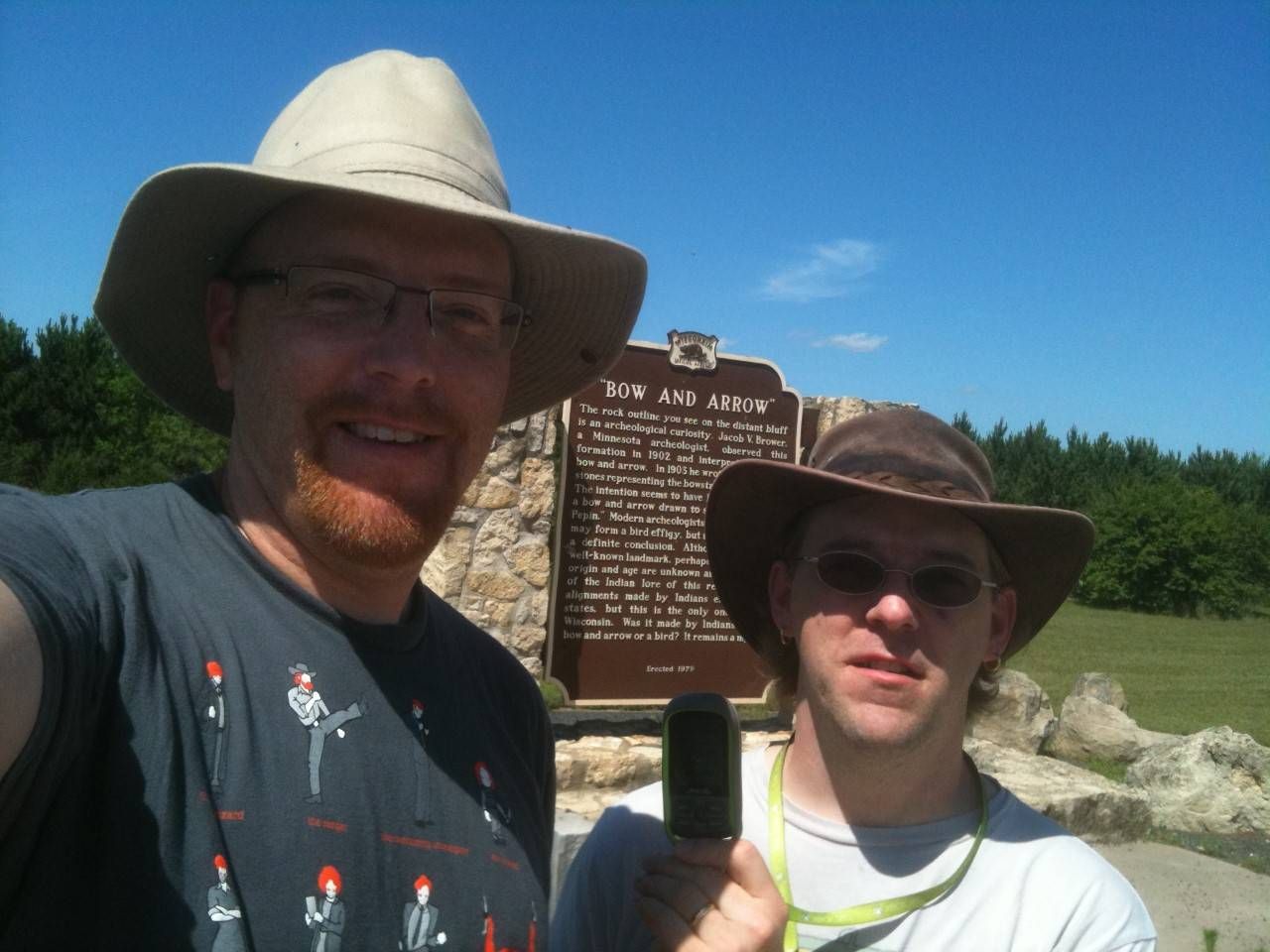
LUKE: How did you get introduced to Geocaching?
TIM: Back in 2010, I got my first smart phone. Soon after, I was listening to a podcast that happened to mention geocaching, and that you could do it with an app on the phone. Both Thom and I had heard of geocaching before. I googled it to learn more about it. Thom and I worked together then, as we do now, and we headed out at lunchtime to find our first cache in a park next to the river in Minneapolis. We were both hooked from the first day. As time went on, we both purchased GPS units to use when out of cell service.
THOM: Tim captured it perfectly. Although we had both heard of geocaching previously, it took our first cache find out in the "wild" to get us hooked. I still remember that first cache, the location, the container and the surroundings. I get a great feeling of satisfaction when one of my hides is some new geocacher's very first find.
Tim (a.k.a. "Minnesota Boy") has a handful of caches hidden in Elm Creek Park Reserve near Champlin, Minn. One of his caches was placed back in October of 2011 in honor of Thom's thousandth find. As recently as yesterday - more than nine years later - it is still being found. Thom (a.k.a. "Gravitybear") has caches on Nicollet Island, in Materion Park in Roseville and in Elm Creek Park Reserve. If you happen to find any of these caches, let us know in the comments.
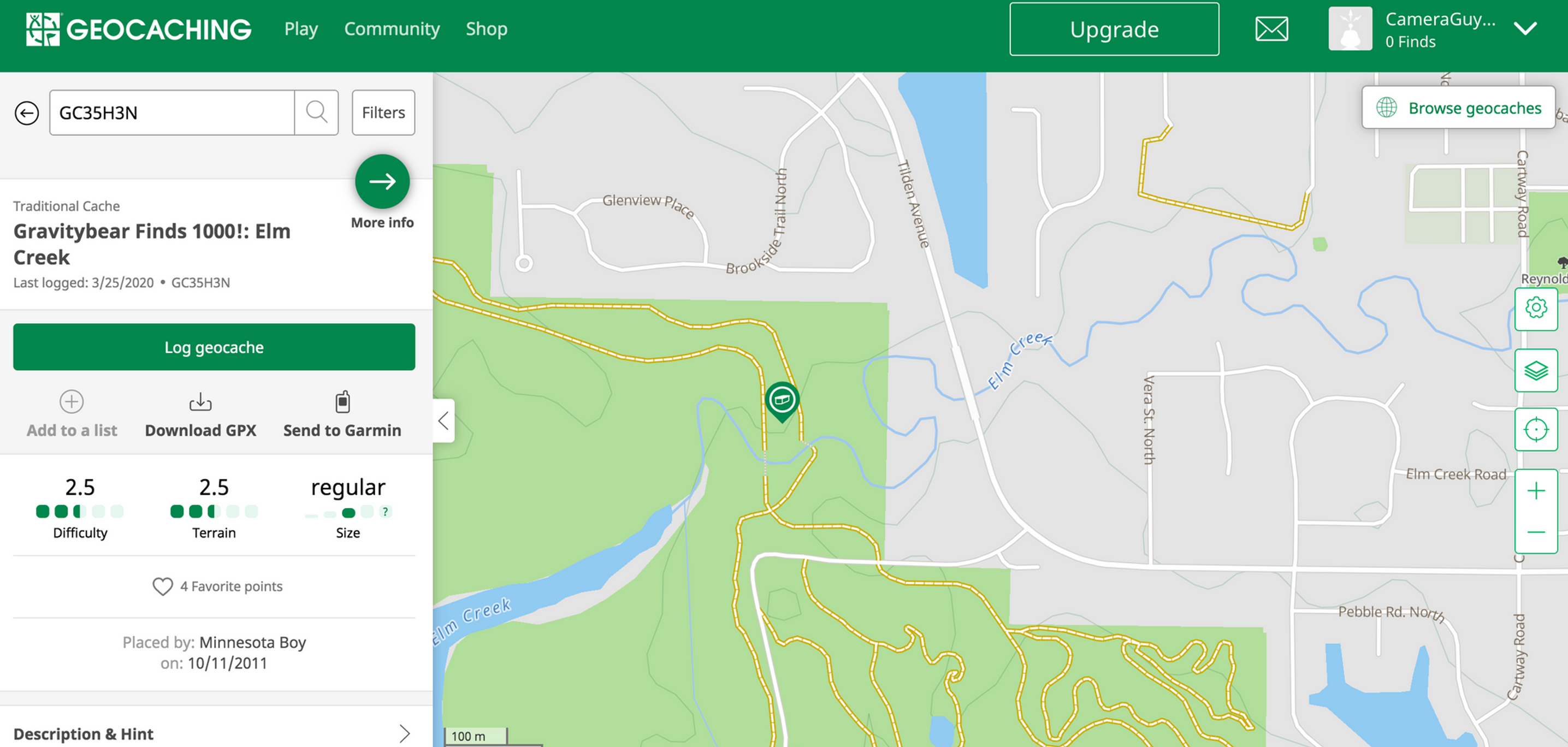
LUKE: Is geocaching a good family activity?
THOM: Geocaching is an excellent family activity. You can get everyone out of the house and into nature, then you get to go on a treasure hunt! What's not to like? Exercise is just one of the benefits. You can also give kids a feeling of accomplishment when you find that cache or solve that puzzle.
TIM: When my now-adult kids were young, I took them out many times. My adult daughter likes it and occasionally does it today. My son liked hanging with me, but it didn't catch on for him. Either way, at the time, it provided us with an outdoor activity to do together.
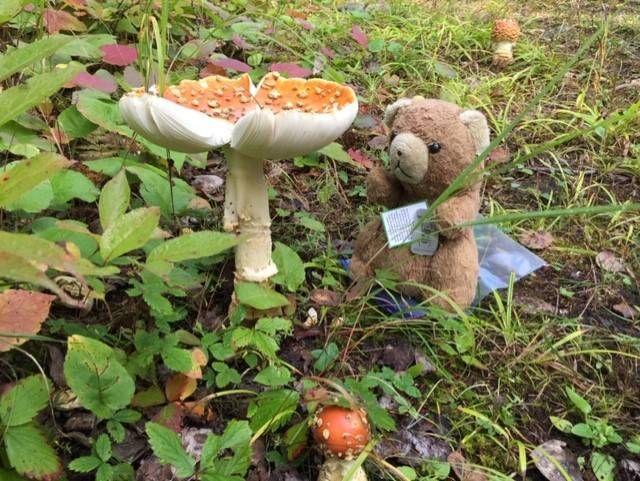
LUKE: Talk more about how parents can use an app to see if a given cache is going to be more family friendly, or easier to find, than some others.
TIM: All geocaches listed on geocaching.com, as well as the app, have some things that would help a parent find appropriate caches. First, each cache is rated for difficulty. A numbered 1-to-5 scale, with 1 being easiest and 5 being hardest, can be a big help. Also, there is a terrain rating, with the same 1-to-5 scale. One would mean generally on flat paved surface, and 5 meaning steep slopes, high up in a tree or even on a cliffside. You can also look to see what size it is, with larger ones generally being easier to find and possible with more kid-friendly swag in them. One tip I heard early on is that, to make sure your young child will have a good time, is to go out and find them without [your kids] to be sure they are good caches for them. Then, return later with the children, knowing you can find it! Please take a look at geocaching.com for other tips.
THOM: Another great tip is to use some of the search filters on geocaching.com. Another way you can sort your possibilities is to use a filter on caches that have been found within the last seven days. That way, you know someone has been there recently, and if you want, you can read their found logs ahead of time to see if there is anything special you should know. Found logs on the website can contain spoilers, but if the point is to get your kids out there, you might want to take a look first.
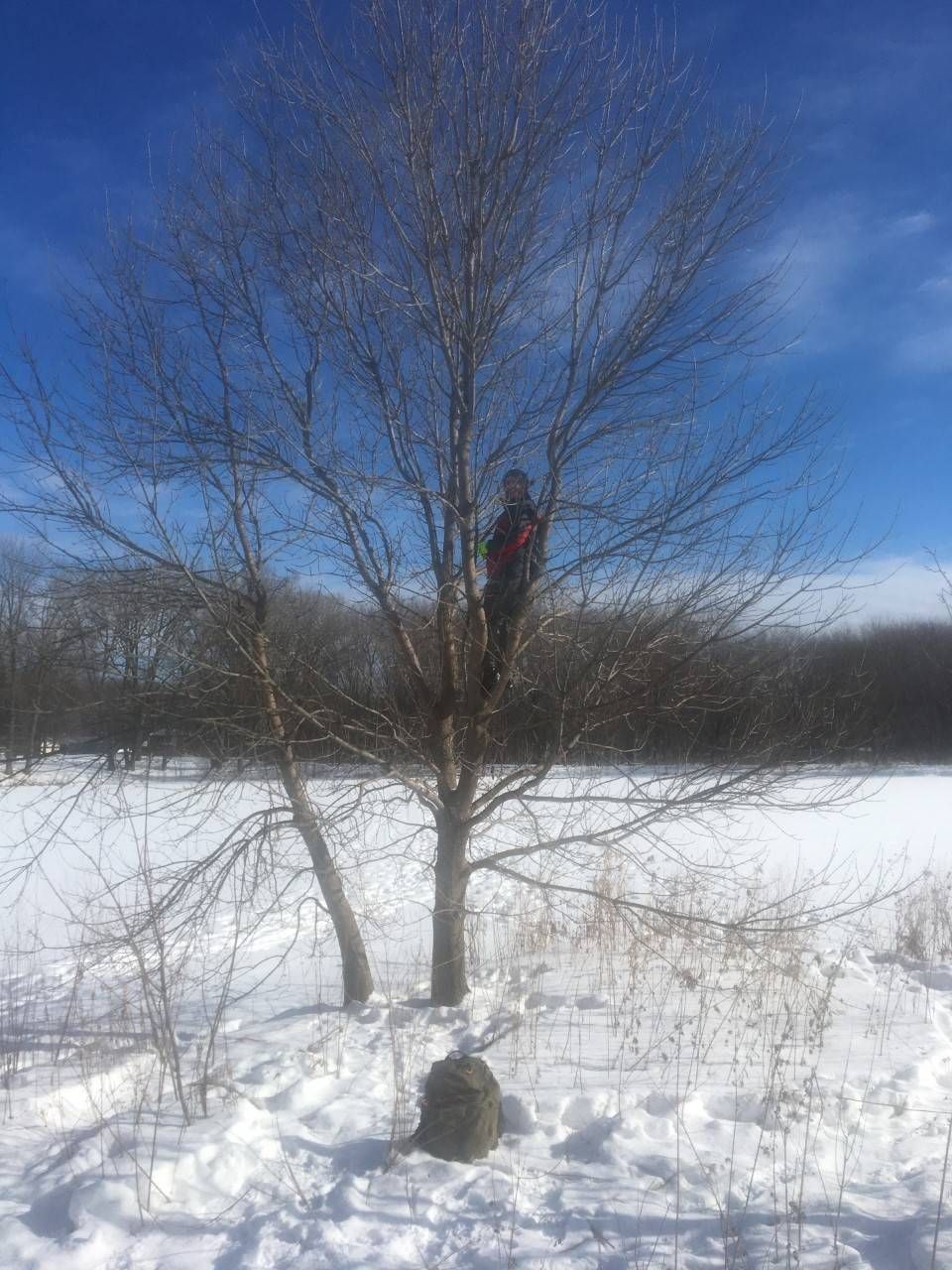
LUKE: How do geocachers help take care of the environment?
THOM: Geocachers help take care of the environment in many ways. First to mind are the types of events called CITO, which means Cache In, Trash Out. This is a type of event where geocachers get together to clean up a park, or help with lake clean-up as ice fishing season winds down, or even help remove invasive species like buckthorn or garlic mustard.
TIM: It is kind of a tenet of geocaching to leave an area better than you found it, so we most often carry a bag to collect trash as we go.
LUKE: How does geocaching help you feel more connected to the land, community and environment?
TIM: I like being outside. Sitting inside on a nice day in Minnesota can feel like such a waste. Geocaching gives me a fun reason to head out and be in nature, get exercise and release stress. In better, non-COVID-19 times, geocaching has events that bring people together for fun, sharing stories and park garbage clean-up. Most often, we carry a small bag to collect trash in the parks or around the city as we walk so we can leave it better than we found it.
THOM: One of the things I enjoy most about caching is it can help me get out to a place where I can experience some stillness and recharge. I love geocaching events, but sometimes I value the solitude of being out alone, exploring a new park or revisiting one of my favorites. The events are a great place to swap stories. One of the things Tim and I enjoy when we are traveling is to hold a geocaching event in another city and meet some new people that share this hobby. One time we met a geocacher from New Zealand who happened to be in Denver, where we were at the time, and he cached with us for the rest of the day.
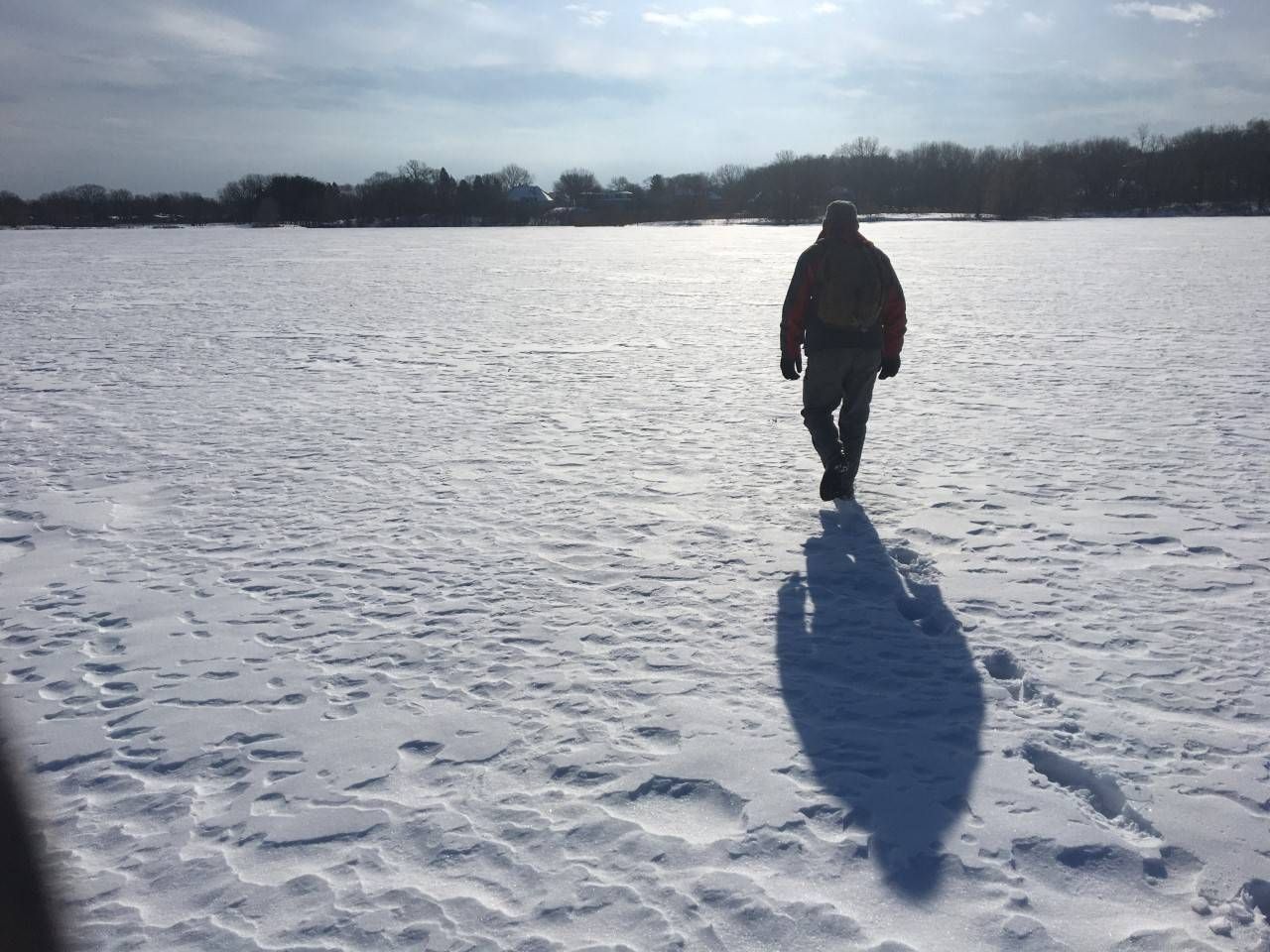
LUKE: Combined, you have nearly 10,000 finds. Drop some names. Who are some of the best geocachers? Who should we be paying attention to?
THOM: While Tim and I have been doing this for 10 years, the pioneers in Minnesota have been doing it almost twice as long. I have to give a lot of credit to a geocacher called "King Boreas," who is the most prolific cache hider in Minnesota. He is still the hider who makes up the largest percentage of my finds. The biggest celebrity I know is "The Geocaching Vlogger." He's on YouTube, Twitter, Instagram and TikTok.
TIM: I agree that "King Boreas" deserves much credit for establishing geocaching in the State of Minnesota. "The Geocaching Vlogger" makes great videos about his caching adventures on YouTube.
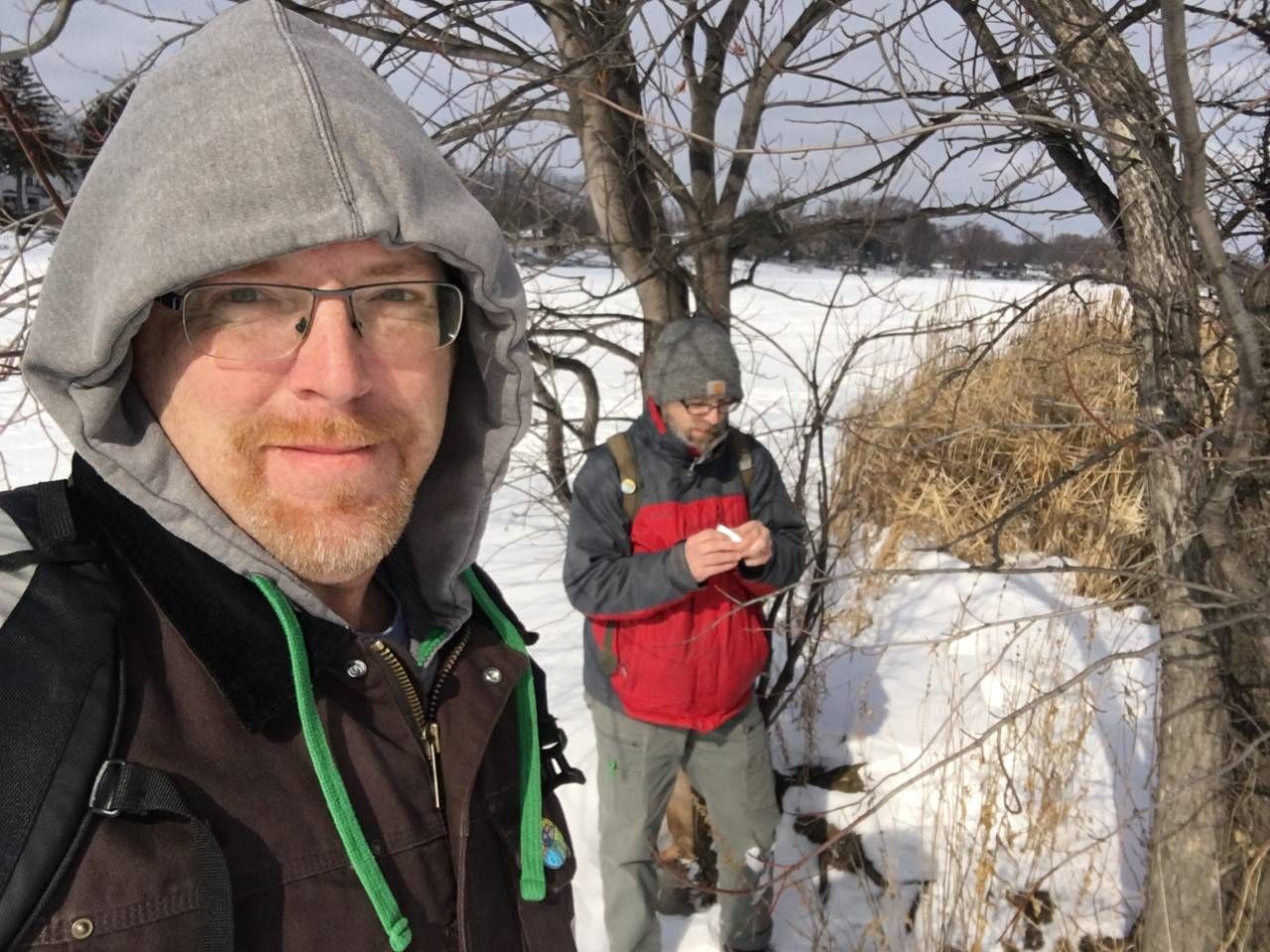
LUKE: Is geocaching something that is more fun to do with a partner? Do you ever go out alone?
TIM: I do a lot of both. If I am with anyone, it is usually my brother, Thom, and we have a lot of fun together. Sometimes the extra set of eyes makes it easier to find the cache, too. That said, I really enjoy my time out alone, too. It is a good time to think about whatever is on your mind. With Covid-19, being alone for a bit might be good for everyone - just be safe.
THOM: Given the choice, I would always go geocaching with Tim since we have a lot of fun together, but I also value the chance to be alone sometimes. That's another great thing about geocaching is that it can fit anyone's style.
It is a great activity to keep your mind and body active during our time of social distancing.
LUKE: What advice to you have for someone who is just the slightest bit intrigued, but still uncertain about whether or not geocaching is for them?
THOM: Geocaching has so many benefits since it exercises your body and mind, and being out in nature doing it can nourish the spirit. The cost isn't that great for most, since they have a smart phone already - but if you don't, the entry-level GPS devices aren't that expensive and work really well. So many geocachers I have talked to have said that they were hooked after finding their first geocache. Downloading the geocaching app is easy and free, although for best access, the premium account is well worth the nominal annual fee. You can geocache whenever you have the time, and there are probably geocaches within walking distance if you live in the metro, and usually within a short drive for anyone in greater Minnesota. I've found geocaches in 35 states and six Canadian provinces so far, and aside from these far-away places, geocaching has brought me to some fascinating and beautiful spots in the Twin Cities that I had never been to before. Although my pace of geocache finds has slowed as my life has changed from when I started, this is an activity I will keep doing for as long as I am able.
TIM: I could not agree more with what Thom has said here. I get so much from it, from exercise to meeting new friends. He is right: Geocaching will bring you to places you might not go for any other reason, and it's a great activity to do almost anywhere you are. Good places to start, check out Geocaching.com and The Minnesota Geocaching Association.
In a newfound era of social distancing, two longtime friends got together to play a game of disc golf as a way to feel normal when everything else is anything but. Keeping a minimum six-foot distance, Twin Cities Producer Luke Heikkila tagged along to learn how others are finding creative ways to be social together – and spaced far apart at the same time.
Like so many Minnesotans, Twin Cities PBS Producer Luke Heikkila found himself suddenly camped out at his dining-room-table-turned-desk after a work-from-home mandate. But then he realized something: His neighbors were spending a lot of time outside. So he decided to check in with them to see how they’re faring in this time of COVID-19.
Because the COVID-19 pandemic is an evolving issue in Minnesota, Twin Cities PBS is producing a weekly show, Coronavirus: An Almanac Special, where we share practical information from trusted medical sources so all Minnesotans know the steps to prepare for the coronavirus.
